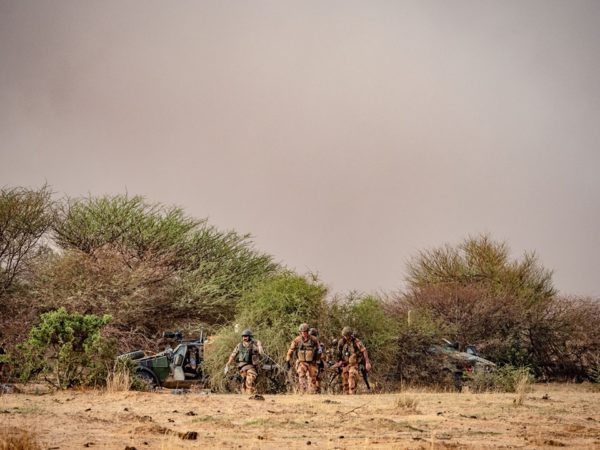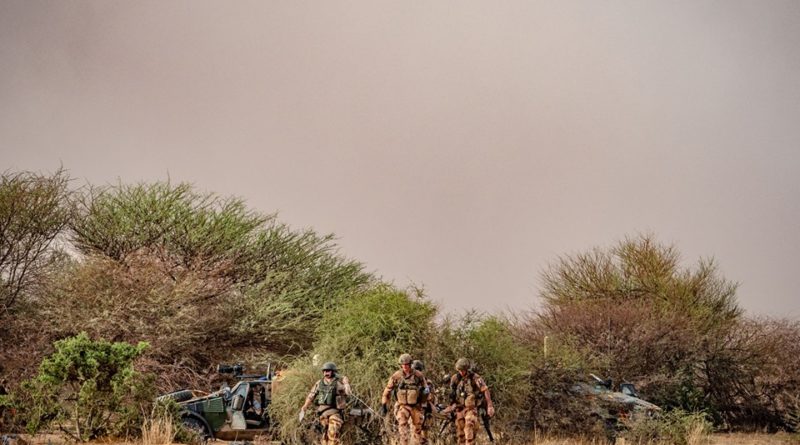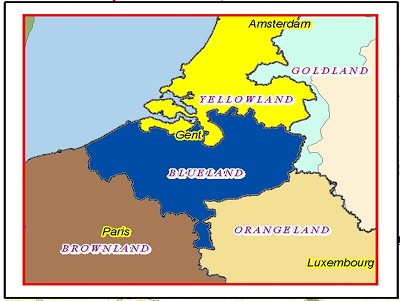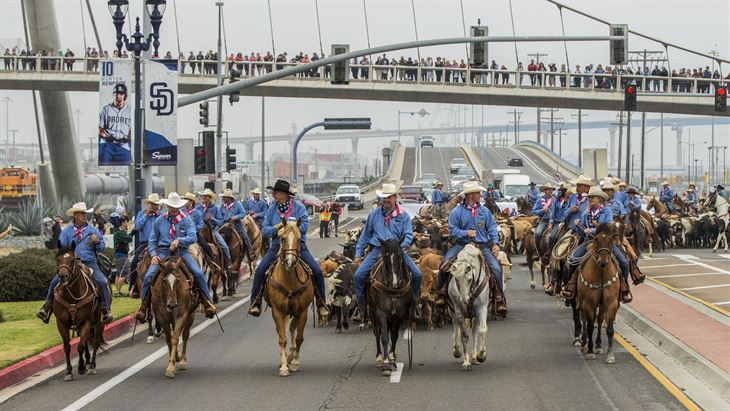Operation Barkhane. Is France (really) alone in the Sahel? (v2)
(B2) It's a refrain that occurs with each accident or death: the French would be alone in the Sahel. Is it true ? Some information and some food for thought...

With all due respect to the polemicists, there is no definite answer, by 'Yes' or 'No', to this question. Of course, proclaiming that France is alone is quite easy. It amounts to saying 'we are the best', pointing the finger at these 'despicable' Europeans and avoiding asking certain questions. Conversely, to say that the Europeans are there reactive, present, is perhaps to embellish the truth. Reality is more complex. The duty of the journalist is not to strike a point of view, it is to present the facts, analyze them if necessary, and possibly draw conclusions, but leaving everyone free to have an operation.
Reality: a real presence, but not sufficient
First, the Europeans are rather there and there, in terms of logistical support in Barkhane. Secondly, they ensure the functioning of the European training mission of the Malian army (EUTM Mali). Finally they are present in the Minusma, the force of blue helmets in Mali. But there remains a 'problem': the presence on the ground. It remains incomplete for the moment. With a promise of improvement, thanks to Operation Takuba.
Denmark, United Kingdom, Spaniards in essential logistical support in Barkhane
Without this support, let's be clear: the operation would stop in a few days. Since the beginning of 2019, 50% of intra-theatre transport of personnel and freight has been carried out by Allied and European countries: Spain contributes 15% (Mamba missions and Ivory conducted respectively from Gabon and Senegal) (1). The United Kingdom with its British Chinook helicopters also participates for nearly 15%. The United States (nearly 10%) and Germany (more than 6%) contribute the rest, along with Canada and Belgium. Read The detail
Read also:
- The danes fan out
- Personalized British helicopters deploy
- The Spanish aircraft of Operation Marfil
Support from EUTM Mali
The Europeans have taken over from the French to ensure the continuity of the training mission of the Malian army (EUTM Mali), launched in 2013, with a certain general François Lecointre (the current chief of the French army staff) at its head (read: Successes and shortcomings. Review of the first six months of EUTM Mali (Lecointre)). This represents approximately 600 men. The current command is Austrian. They will hand over to the Portuguese in early December, then to the Czechs in the summer (read: The Czechs will take command of the EUTM Mali mission ). Suffice to say that we are indeed on an awareness of Europeans.
A very useful mission because it is responsible for training the battalions of the Malian army, which are then deployed in the field, in national mode, or within the G5 Sahel. This is the only possible exit strategy for Barkhane. There is of course, a questioning on the reinforcement of this mission, both in the training given and in the possibility of further supporting the troops in the field. It has just been started (read: Sahel. Growing European concern. Should we change the software of EUTM Mali).
A presence in the Minusma
Finally, the Europeans are present in the Minusma. According to the latest obtained by B2, about 380 Germans (+ about ten police personnel) and about 250 Swedes serve under the United Nations flag. Romanians with 120 soldiers and four IAR-330 L-RM helicopters (Romanian version of the SA 330 Puma) provide a valuable contribution, particularly for medical evacuations or extraction in the event of an incident. They will be joined by the Danes. A Lithuanian section is also there (about thirty men), as well as a Belgian section (also about thirty), about fifteen Irishmen and a few Dutch and Czechs.
Some of them (Germans, Swedes, Irish in particular) serve in the Operational Intelligence, Surveillance and Reconnaissance Force (FO ISR) led by Germany and located in the East sector of MINUSMA, based in Gao. Objective: to go and collect information, useful for the “development, decision-making and implementation” of the mandate. Irish soldiers, in particular, play a key role in carrying out " patrols in the area, to gather information from the local population as an Irish Army officer explained.
There too, there is a questioning to be had on the effectiveness of the UN operation, of its confinement inside overprotected bases. And the effectiveness of certain contingents (such as the 1200 Bengalis) can be questioned.
Limited ground engagement
On the ground side, the Europeans are not very present on the ground with the notable exception of the Estonians; a role that must be clearly welcomed (read: Les Estonians are already present in support of Gao). The British are also present, further back, with their helicopters. But the arrival of European special forces alongside the French could change the situation. It is no longer pure prospective. It is progressing a bit, concretely. B2 has confirmed this. Read : Several European countries are engaged or are considering engaging in Mali (Operation Takuba)
Five (good or bad) reasons not to come
Screaming at loneliness is useless (except to have fun), if you don't understand the reluctance of some Europeans to come and join. Several reasons can explain this European weakness.
1° Commitment to combat is not at all in the DNA of European countries. It must be said clearly. The price of blood is higher in some countries than in others. And few politicians in Europe are prepared to risk the lives of their soldiers deliberately. Cowardice, selfishness, sense of responsibility... we can ramble. But that's the reality.
2° A State does not undertake such risky missions without a solid national interest to defend. Or is it out of solidarity. But, here again, the 'politicians' of the country must commit themselves and... obtain at least tacit consent from their population. The former Polish Minister of Defense and Foreign Affairs Radek Sikorki asked the question concretely a few days ago in Parliament: Do we [as Poles] have interests in Mali or in Africa. No. We would never have sent our troops if we weren't together, if we didn't believe that we were in a family. » (read : The discussion on the CFSP and CSDP reports continues)
3° Validation must be obtained each time by a government (often in coalition) and/or Parliament. With, very often, a point-by-point justification of the commitment in financial, human and strategic terms. A document that does not exist in public terms for Operation Barkhane.
4° Few States are prepared to engage in this type of mission, outside of a very tight NATO-type framework. However, this framework does not exist in Mali (and could not exist). The idea of going into a coalition and following the best practices, without the Americans (or NATO) as safeguards does not please many Europeans. It changes. But slowly
Finally, last reason: we must leave to the Europeans a part of command, of orientation in the strategy. Saying: come, here is the strategy, sign and obey is not really likely to lead to everyone's support. We discussed it a year ago with General Lecointre, Chief of the Defense Staff. And the conclusion was quite clear: we can do something next to Barkhane, but leaving the reins to Barkhane would not be a good choice. Hence the idea that was born from a team of special forces (read: All together, that does not mean all behind us (General Lecointre))
Other embarrassing questions to ask yourself
You also have to start asking more uncomfortable questions.
If the Europeans arrived in force, doubled, tripled the number of resources (soldiers, helicopters), would that have an effect on the ground and prevent accidents like the one last Monday?
Would the French be ready to share the command of Barkhane, for example if 3000 Germans arrived in force (very hypothetical hypothesis)? I'm not really sure that the operation would gain in efficiency...
Even if they are not present in combat, isn't the fact that Europeans are present in EUTM Mali or in Minusma useful somewhere? Would the French be able to replace them if they decided to leave?
A strategy problem?
Finally, you have to put your finger where it hurts: Why do the terrorists normally destroyed, mined reappear with so much force afterwards? Why, with all the technology available to our trained forces, can we only defeat a few hundred or thousands of poorly trained 'rebels'? Isn't there a strategy to change? It is the whole question of the asymmetry of forces that is posed, but also of the difficulty of imposing peace in a country that is not able to manage this peace...
Why is the Malian power always proving so incapable of asserting its authority? Why are some countries allowed to influence, especially on Koranic schools? Etc. Barkhane must evolve, EUTM Mali also, the Minusma must question itself and the Malian power stop hiding behind its little finger.
A question that interests political Europe
It is a fact. France must not ask itself these questions alone. These are questions that interest Europeans. And, instead of endless observations of the European navel (especially on Brexit), an in-depth, substantiated, frank discussion between European leaders, at a future summit in December for example, would be very necessary.
(Nicolas Gros-Verheyde)
Update on Minusma's ISR Task Force


